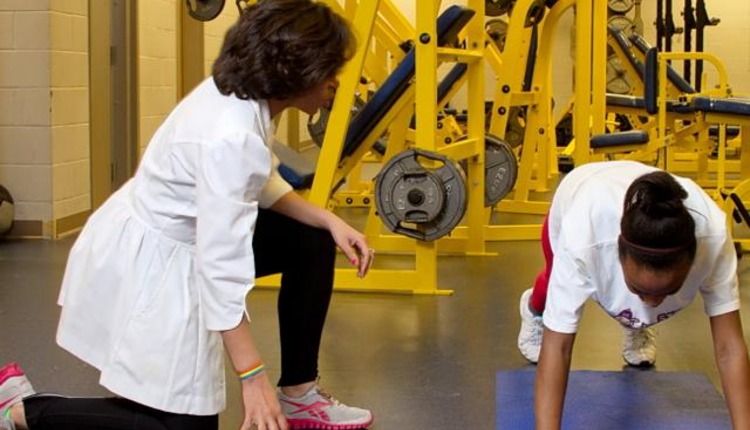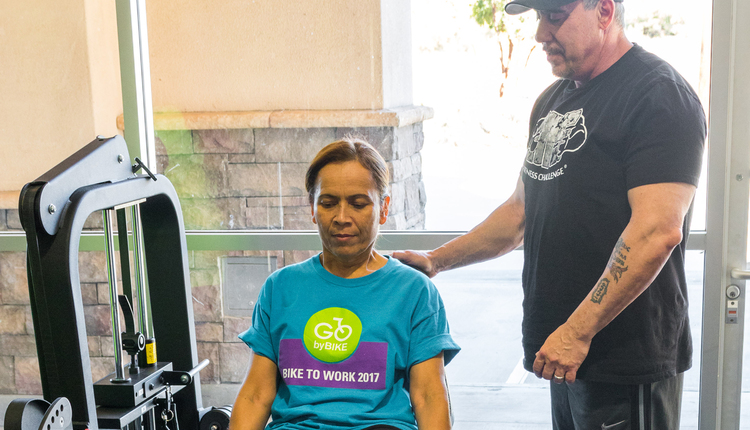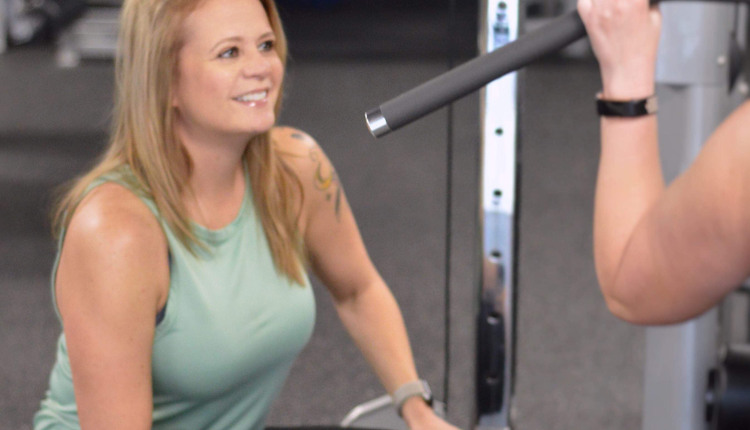When a client wants to train for a marathon, running coach and trainer Dr. Jason Karp isn't quick to begin stacking on the miles. Instead, he works with the client to lay a proper foundation of form and technique, which he believes is the most critical component to injury-free and successful running.
"Running is a special thing," says Dr. Karp. "Like any other sport, there is a specific way to train for it. I hate when people don't take it seriously. When training for a marathon, you have to respect the distance."
But that's what makes Dr. Karp different than the Johnny-come-lately running coaches that crowd the Internet. He has laid a solid foundation in his career to give him the education, the experience and the credentials to make someone a great (or at least healthy) runner.
And he "respects the distance" of long-term career success. He didn't try to shortcut the journey with overnight certifications and get-rich-quick ideas. Instead, he took the old fashioned route -- education.
Karp became fascinated with human motion after running his first middle school track meet. The idea of running faster than the boy in the next lane excited him, and figuring out how to do it was intriguing. He envisioned himself a coach one day, helping others run as fast as they could.
As a high school runner in New Jersey, Karp happened upon a TV program that examined the issue of why black athletes seem to be better than white athletes. There was a scientist on the show who ran a biomechanics lab in California. Struck by her son's deep interest in athletic performance, Karp's mom prompted him to call that scientist.
Karp did. He asked the scientist where he should go to college, to which the scientist replied Penn State, which is well known for biomechanics.
Karp followed the scientist's advice and headed off to Penn State, working in the biomechanics lab while he was in school. His senior year, Karp, along with some grad students and professors, went to the American Society of Biomechanics conference. At the banquet, he saw that same scientist from the TV show years earlier and introduced himself.
Karp said to him, "You probably don't remember me, but when I was in high school, I called you after seeing you on TV and asked you where I should go to college. I followed your advice and went to Penn State. Now I'm preparing to go to graduate school. Where do you recommend?"
The scientist immediately responded that he should stay at Penn State or go to the University of Calgary. Karp soon made a visit to Calgary, and after seeing the human performance lab and Olympic Training Center there (Calgary was the site of the 1988 Winter Olympics), Karp was convinced that Calgary was his next step.
He completed his master's degree at Calgary and took a job as head coach for a college cross country team in New Jersey. After a year there, he moved to San Francisco with his twin brother and coached track and cross country at a couple of high schools while teaching classes in the fitness certificate program at UC-Berkeley and working as a personal trainer.
Eventually Karp decided to round out his education with a Ph.D. from Indiana University, where he also began coaching runners privately. His clientele began to build when he received an email from a local running club. He replied, saying that he was looking for runners to coach. One woman, a recreational runner who wanted to take the sport to a higher level, responded to Karp's email. She was a 3:13 marathon runner who, with Karp's help, shaved her time to 2:48 and qualified for the Olympic Trials.
Dr. Karp's private training roster continued to grow, both in-person and through distant-coaching. His Ph.D. is in exercise physiology and his depth of experience working on the biomechanics of running appealed to many, like the father of a talented high school runner named Sean.
Sean's dad found Dr. Karp on the Internet but called and interviewed him at length. He was looking for someone to coach his son who had a Ph.D. and could help his son reach elite potential.
Dr. Karp has coached Sean, who is now a senior, over the phone and via email from the time he was a freshman. Sean currently runs a 15:20 5k and is one of the best in the country for his age.
Privately training running clients has evolved into Dr. Karp's own full-fledged running team, based in San Diego, where Dr. Karp currently resides. Called REVO2LT Running Team (an acronym for the three physiological determinants of running performance -- Running Economy, VO2max, and Lactate Threshold). The team is a combination of members who were invited to join as well as those who joined on their own. Each member has an individual goal -- like training for his/her first 10k or marathon. Members also participate in club events, all of which are sanctioned by USA Track & Field.
Dr. Karp says that each team member, whether he or she is training with him in San Diego or from a distance, gets a team uniform. He hopes to build REVO2LT Running Team into something big enough to attract a sponsor.
When he's not coaching runners or training fitness clients (he still has a few of those), Dr. Karp is an avid freelance writer. In fact, writing is an integral piece to his business plan. Many of the articles he publishes in trade or consumer magazines reel in clients and boost his credibility.
His writing career began as organically as his running and coaching career. After minoring in English, Karp was working as a personal trainer in a gym when he began thumbing through the pages of a fitness magazine on the desk in the trainers' room. After reading several articles and the author bios, he thought to himself, "Not only can I do this, I can do this better."
Karp began writing for trade magazines and then branched out into the national consumer market and international track and field coaching journals. While working on his Ph.D., he also wrote his first book, How to Survive Your Ph.D. His second book, 101 Developmental Concepts & Workouts for Cross Country Runners was written at the request of a publisher. He is currently working on his third book, Women's Running Bible, which will be published by Human Kinetics in 2012.
By combining his writing skills with his passion for running and his fascination with exercise science, Dr. Karp has lived up to his number one principle: be true to yourself. He has crafted a successful career, based on the solid foundation of education, that allows him to work for himself and pursue his own ideas.
Not unlike a marathon, Dr. Karp's career has been the long-term culmination of hard work, dedication, and preparation. Perhaps now Dr. Karp can look back on his successful journey and he too can "respect the distance" he's come.
Dr. Jason KarpExercise Physiologist / Owner / Coach / FreelanceWriter and Author / College Professor
Company Name: RunCoachJason; REVO2LT Running Team
Certifications: USA Track & Field
Education: Ph.D. in Exercise Physiology (Indiana University), Master's in Kinesiology (University of Calgary), B.S. in Exercise and Sport Science (Penn State University)
Contact Info:
phone: 619.546.8386
email: jason@runcoachjason.com
website: www.runcoachjason.com










